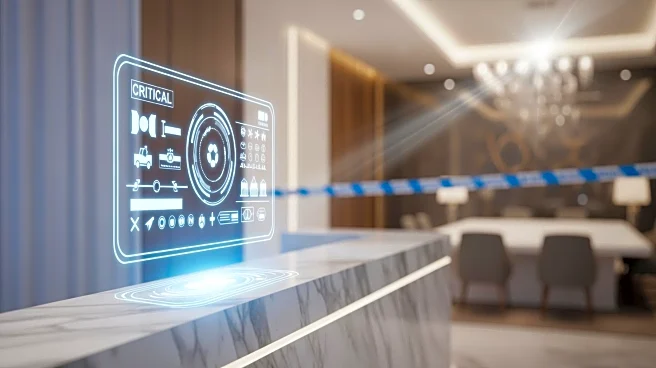Rapid Read • 8 min read
Hotel design is increasingly incorporating psychological principles to improve guest experiences. Designers are focusing on understanding guest demographics and preferences to create environments that align with their expectations. This involves detailed planning, including the placement of light switches and the use of moodier lighting and color drenching techniques. The aim is to tailor hotel spaces to specific guest needs, such as functional workspaces for business travelers or relaxing atmospheres for leisure guests. Additionally, designers are integrating local culture into hotel designs to offer guests meaningful connections with the places they visit.
AD
The shift towards psychologically informed hotel design reflects a broader trend in the hospitality industry to prioritize guest satisfaction and emotional engagement. By understanding and catering to guest preferences, hotels can enhance their competitive edge and foster loyalty. This approach not only improves the guest experience but also aligns with modern travelers' desires for meaningful connections rather than material luxuries. The integration of local culture into hotel design can differentiate properties and create unique, memorable experiences that resonate with guests, potentially leading to increased bookings and positive reviews.
As the trend of psychologically informed design continues, hotels may further explore innovative ways to connect guests with local culture and enhance their experiences. This could involve collaborations with local artists or cultural institutions to create unique offerings. Additionally, advancements in technology may enable more personalized guest experiences, such as smart rooms that adapt to individual preferences. The ongoing evolution of hotel design will likely see increased emphasis on sustainability and wellness, reflecting broader societal shifts towards these values.
The integration of psychological principles in hotel design raises ethical considerations regarding guest privacy and data usage. As designers seek to understand guest preferences, they may rely on data collection and analysis, which must be handled responsibly to protect guest information. Furthermore, the focus on local culture highlights the importance of cultural sensitivity and authenticity in design, ensuring that representations are respectful and accurate.
AD
More Stories You Might Enjoy











